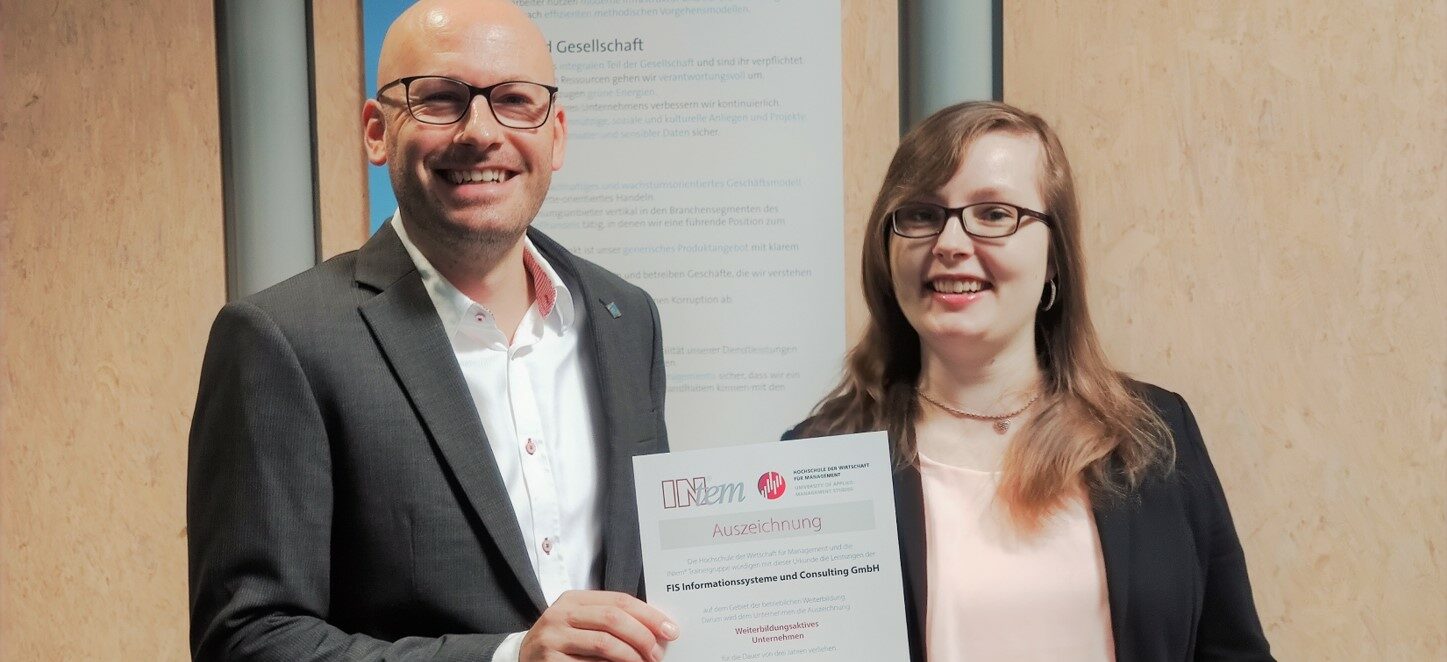The Hochschule der Wirtschaft für Management (University of Applied Management Studies) and INtem Trainergruppe grants the “Company active in further training” award to companies showing special commitment when it comes to the further training of their employees. FIS Informationssysteme und Consulting GmbH (FIS) has demonstrated this commitment in the last few years and received the award due to outstanding further training measures. When the award is presented, special emphasis is placed on corporate further training in the following four areas:
Future skills are competencies that will become important in the next five years both for social participation and for professional life across all industries.
Technological skills are digital skills that shape new professions and that are practiced by more and more employees. People mastering these skills have the latest (information) technological expertise and can apply it. For example, they have skills in complex data analysis, robotics development or user-centric design, etc.
Digital citizenship are digital skills that everyone needs in their professional life and for social participation in the future. Mastering these skills enables you to work collaboratively and agilely and make critical decisions in an increasingly digital world. These skills include digital literacy (handling complex data volumes), digital interactions and digital ethics.
Classic skills are abilities and characteristics that everyone needs in their professional life and for social participation in the future. People mastering these skills can find their way in new situations and solve problems with their own ideas. These skills include, for instance, creativity, entrepreneurship and perseverance.
“We are happy about this award as it underlines the high importance of further training for our employees,” comments Julia Schneider, responsible for further training organization at FIS. “Every year, we invest three percent of our sales in further training measures and were therefore able to record an average of 14 further training days per employee last year.”



